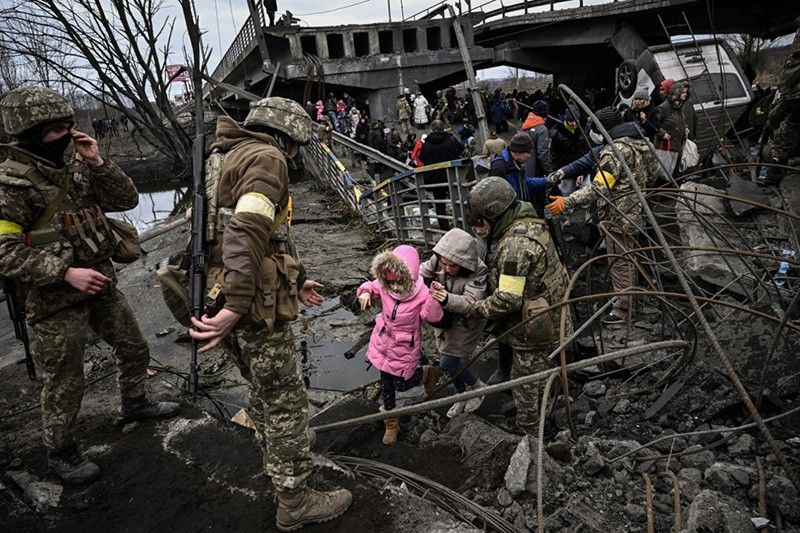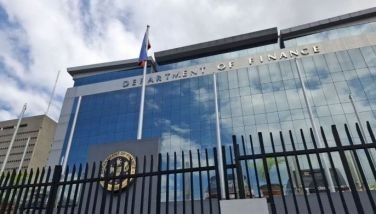Duterte to consider special session to pass laws that will soften impact of Ukraine crisis

MANILA, Philippines — President Rodrigo Duterte will consider calls for him to ask Congress to hold a special session to pass bills aimed at softening the impact of the Ukraine crisis, as officials expect the Philippine economy to be a "collateral damage" of the conflict.
During a meeting with Duterte and some Cabinet members last Monday, economic managers proposed 14 measures that seek to address the impact of the conflict between Ukraine and Russia, which is expected to affect the commodity and financial markets, investments, and the country's fiscal health.
Socioeconomic Planning Secretary Karl Chua said two of the recommendations namely increasing the petroleum buffer stock from 30 to 45 days and increasing the LPG buffer stock from seven to 15 days require the passage of new laws. The economic team would recommend the holding of a special session if the conflict escalates, he added.
Duterte said the recommendation has to be considered, describing the recommendations of the economic managers as "vital to keep the economy humming for a few months."
"Mas mabuti pa siguro kaya pag-isipan na lang natin ‘yan (It would be better if we think about it)," the president said.
Duterte expressed concern that since the Philippines is now in an election season, nobody would be focused on anything except reorganizations and "changing of the guards."
"More so that there is, I think, even if it (crisis) ends, the fractured economy is already in Europe (and it) would affect us more or less by next year," the President said.
"Let us be frank with Congress. This is intended really for the welfare of the people. If you have the time, sit with us and we can discuss it. Otherwise, you’re on your own. If not, you would only set aside the things studied by the outgoing administration," he added.
Executive Secretary Salvador Medialdea said his office would coordinate with Chua on the possible calling for a special session.
Some lawmakers have urged Duterte to call for a special session so Congress can tackle bills that would provide relief to consumers who are affected by the successive oil price hikes.
Malacañang has asked Congress to review the 1998 Downstream Oil Industry Deregulation Act, citing the need to allow the government to intervene during prolonged increase of prices of oil products.
Collateral damage
Finance Secretary Carlos Dominguez said while the crisis is not expected to last very long, it may have lingering effects like the 1990 Gulf War, the 1997 Asian financial crisis, the oil price shock of 2008 and the first Russia-Ukraine conflict in 2014.
"I would like to start by saying that the conflict between Russia and Ukraine does not involve us directly... because neither Russia nor Ukraine is a major trading partner of ours. Instead, the Philippine economy will likely be collateral damage. It is as if we are hit by a ricocheting bullet," the finance chief said.
Dominguez said the economic impact of the crisis would require government support to protect vulnerable citizens and the critical sectors most affected by the crisis, a necessity that would stretch the country's budget even further.
The measures recommended by the economic team are related to strengthening the overall economy, ensuring enough supply of gasoline and diesel, liquified petroleum gas (LPG), coal, rice, corn, pork, fish, chicken, sugar, and wheat; conserving energy, providing overall support to agriculture; and updating the strategic investment priority plan to include renewable energy and agriculture.
Chua said the giving of fuel subsidies are already covered by the national budget and can be implemented immediately. He added that the adjustments of tariffs for coal, rice, corn, pork could be done through the issuance of an executive order since Congress is not in session.
- Latest
- Trending
































